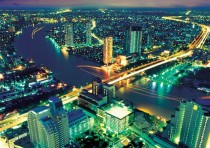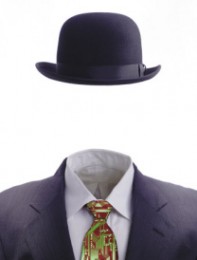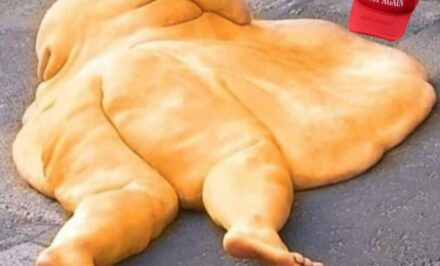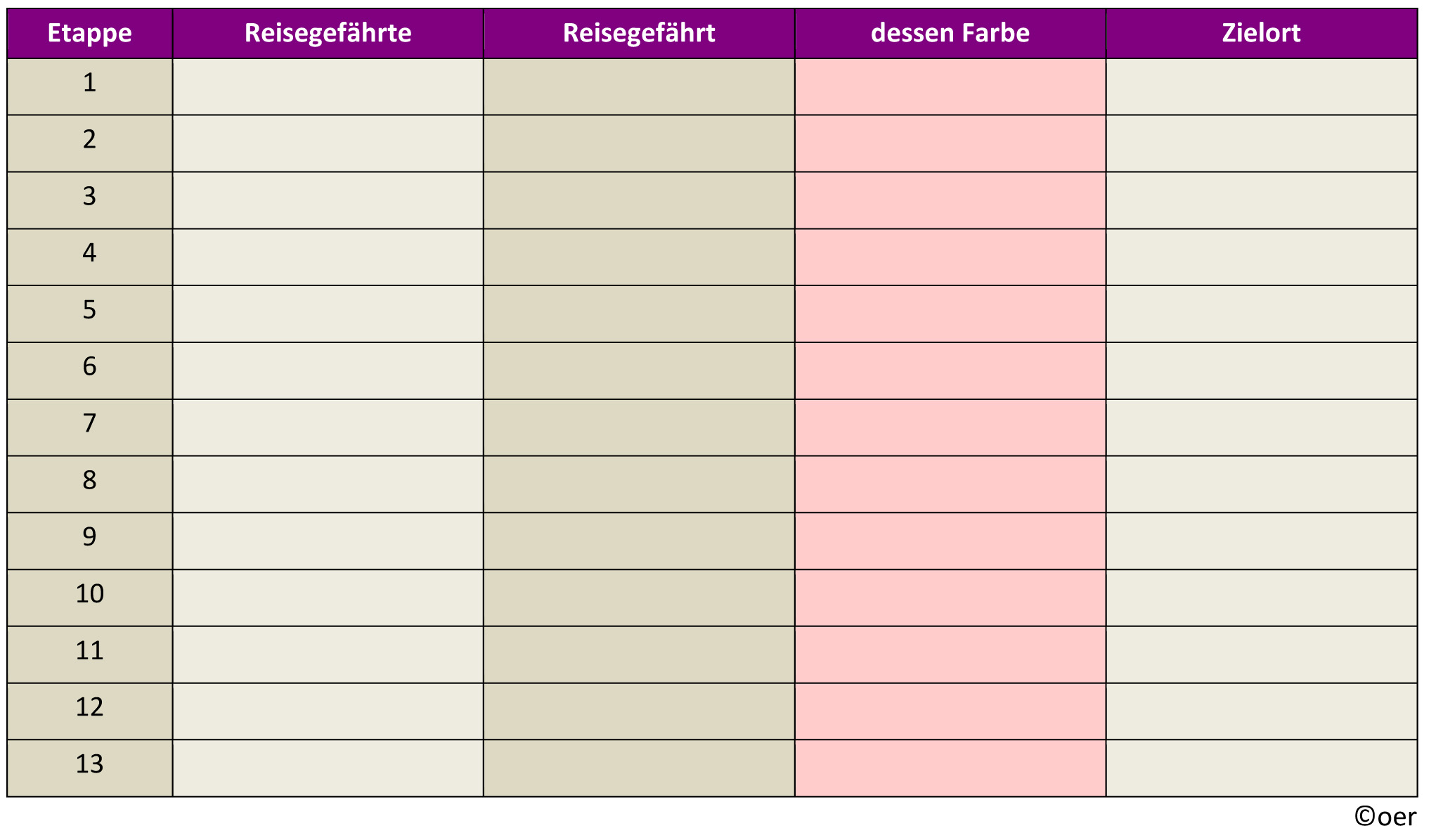 Christopher G. Moore heute über Schriftsteller, Schriftstellerdarsteller, Wannabees und wirklich kreative Menschen. Und über Freiheit!
Christopher G. Moore heute über Schriftsteller, Schriftstellerdarsteller, Wannabees und wirklich kreative Menschen. Und über Freiheit!
 The Invisible Man
The Invisible Man
Last week I was at a gathering, which included an American from Kentucky who was passing through Bangkok. He had stories about George Clooney and other famous people from his State. The conversation turned to what young people in the United States aspired to in life. The answer from the American guest was simple: “They want to be famous.”
In a celebrity driven culture that should come as no surprise. Fame is associated with the good life—wealth, status, prestige, and glory. The world is your oysters. You are mobbed in public by admiring strangers.
In the old days, fame was limited to movie stars or superstars in the sports world, but fame has metastasized into many new areas including authors in the world of books.
There have been famous contemporary writers since Charles Dickens. Authors like Georges Simenon and his reputed bedtime with ten thousand women. Martin Amis and his reputed dental surgery. Salman Rushdie whose Midnight’s Children saw him go into hiding from the mullahs for a decade. James Patterson multimillion-dollar making fiction factory. J.K. Rowling, a welfare mother turning words into a billion dollars. These authors are recent examples of the rewards and punishment of the literary famous. They have set the goal post for the wannabe literary famous.
There is a new class of writers looking to join their elite status. Self-published ebook authors. With the changes in the publishing, globalization, the internet and ebooks, the possibility of fame appears within the grasp of people who self-publish a book. Some of these new ebook authors have used the new digital channel to become wealthy. Have they also become famous? Not unless you confuse being well off with being famous. Most of the ebook self-published authors remain obscure and as poor as when they started their book. But dreams are hard to kill despite the reality fame rarely settles on the shoulders of most of us. And when it does, choosing to live with Simeon’s prostrate or Amis’ teeth, we’d be hard pressed to make a decision knowing it was going to be very public.
 With millions chasing the holy grail of celebrity status, it is interesting when an author decides to take his or her career in just the opposite direction: to become invisible, a cipher, a shadow without substance except the body of work. There are the famous recluses like J.D. Salinger who wrote The Catcher in the Rye, whose fame rested on that book and his decision to shut himself away from the world.
With millions chasing the holy grail of celebrity status, it is interesting when an author decides to take his or her career in just the opposite direction: to become invisible, a cipher, a shadow without substance except the body of work. There are the famous recluses like J.D. Salinger who wrote The Catcher in the Rye, whose fame rested on that book and his decision to shut himself away from the world.
 Timothy Mo, another reclusive author, appears as if hatched fresh from a mysterious cobwebbed warehouse lined with coffins either in Hong Kong or Manila once a decade or so to launch a book before retreating back into the shadows. Pure, Mo’s latest book set in Thailand is already making noises in London. For me, the recluse author is a game plan to maintain fame in another more perverse way. There is no halfway house in the invisible author racket. An author either disappears or he doesn’t. That is how ‘pure’ works. Living underground like a Cicada and emerging with a loud song that drowns out the other insects every decade isn’t disappearing. That is clever advertising.
Timothy Mo, another reclusive author, appears as if hatched fresh from a mysterious cobwebbed warehouse lined with coffins either in Hong Kong or Manila once a decade or so to launch a book before retreating back into the shadows. Pure, Mo’s latest book set in Thailand is already making noises in London. For me, the recluse author is a game plan to maintain fame in another more perverse way. There is no halfway house in the invisible author racket. An author either disappears or he doesn’t. That is how ‘pure’ works. Living underground like a Cicada and emerging with a loud song that drowns out the other insects every decade isn’t disappearing. That is clever advertising.
 It is said that the Gone with the Wind, which won the author Margret Mitchell the Pulitzer Price in 1936, was the only novel ever written by Mitchell as the rest of her life was spent answering fan mail. That is one price to pay for fame—work to answer every inquiry from readers, reviewers, and journalists until they lower your cold, blue body into the grave.
It is said that the Gone with the Wind, which won the author Margret Mitchell the Pulitzer Price in 1936, was the only novel ever written by Mitchell as the rest of her life was spent answering fan mail. That is one price to pay for fame—work to answer every inquiry from readers, reviewers, and journalists until they lower your cold, blue body into the grave.
What I find far more interesting is someone who was famous or near famous, erasing themselves from the public; no images, no email, no Facebook or Twitter account, and becoming anonymous. Fame isn’t for everyone. Having total strangers write you, stop you on the street, phone you, and write you with questions and advice is a great way to see the entire day of writing being put off until tomorrow.
I recently tried to look up an old friend in Vancouver who was a well-known screenwriter for TV, wrote some movies, a successful play, and had been activity in the affairs of the writing community, serving on a number of boards and committees. I’d known Michael for years but had lost contact. All I could find on Google was that he had died in Vancouver mid-year 2010. There was one small obit. I clicked on Google images. Zero. How could that be possible?
Michael wasn’t an obscure wannabe writer but a sought after, successful professional writer with many credits to his name. He was someone well known in Canada. He would have attended parties, conferences, been around on movie sets—all the places where people take pictures. I saw him at such events. In all of my moves, I am certain my photographs of him have long ago vanished. I last saw him and his wife in Vancouver in about 1985.
This is the digital age, I told myself. He’s bound to have enough photographs to fill a moving van. Wrong. I couldn’t find a single photograph of him on the internet. Knowing Michael, I can only think he worked to achieve this goal. He must have planned to ‘disappear’ from the planet, leaving no trace of his image in the public domain. I have asked a number of people and still haven’t found anyone who can explain to me how Michael could have erased his images from every website on the internet. He lived well into the digital age. But in Michael’s case, there isn’t even an image on IMDB though all of his TV and movie credits are listed.
Michael’s successful disappearance into a visual blank screen is an accomplishment. I smile when I think of him vanishing like a magician. Fame wasn’t anything that ever concerned him. He didn’t drink from that well of public recognition; he never got drunk on that strong brew of being a public figure. That drink which nourishes the narcissistic personality disorder never passed his lips. I admired Michael years ago, and I admire his way of leaving the stage empty except for his work.
His way of going isn’t mainstream. The current obsession with fame is further evidence of something more disturbing. The desire for fame is another symptom to be added to long list of symptoms that define the narcissistic personality.
- Reacts to criticism with anger, shame, or humiliation
- May take advantage of others to reach his or her own goal
- Tends to exaggerate their own importance, achievements, and talents
- Imagines unrealistic fantasies of success, beauty, power, intelligence, or romance
- Requires constant attention and positive reinforcement from others
- Easily becomes jealous
- Lacks empathy and disregards the feelings of others
- Obsessed with oneself
- Mainly pursues selfish goals
- Trouble keeping healthy relationships
- Is easily hurt and rejected
- Sets unrealistic goals
- Wants “the best” of everything
- Appears as tough-minded or unemotional
My personal literary hero is H.F. Saint, the author of Memoirs of an Invisible Man. The author had worked on Wall Street. The novel was his first and only. He must have written it at night after selling crappy bonds to people who wanted to become rich and famous. Everyone has the dream of going home and writing the novel that makes them rich. And famous.
Saint not only finished his novel; he hit big time, like a walk on to the New York Yankees who hits a homerun with the bases loaded his first time at the plate. The crowd roars. Memoirs of an Invisible Man was made into a successful movie and H.F. Saint received a large amount of money—the Fuck You Amount—from the movie deal that allowed him to become invisible. And that’s what happened. Saint resigned from his Wall Street job, left New York and moved to France, and as far as anyone knows, he never wrote another book.
He had hit that freak home run, ran the bases and kept on running out of the stadium and disappeared through the parking lot never to be seen again. Like Michael, my friend from Vancouver, you’ll find very little about H.F. Saint, who became the invisible man. No photographs. No interviews or profiles. No life as a famous recluse railing against the publishing industry. Just a long silence.
 The author of Memoirs of an Invisible Man chose to cast aside fame for the luxury of an anonymous life, one without strangers stopping him on the street, writing him, or inviting him to this party or a talking engagement. H.F. Saint escaped all of that because he chose to do so. On Wikipedia, in the place reserved for the author’s photograph, is a painting of a suit and tie with no head. A perfect testament to the book and author.
The author of Memoirs of an Invisible Man chose to cast aside fame for the luxury of an anonymous life, one without strangers stopping him on the street, writing him, or inviting him to this party or a talking engagement. H.F. Saint escaped all of that because he chose to do so. On Wikipedia, in the place reserved for the author’s photograph, is a painting of a suit and tie with no head. A perfect testament to the book and author.
My fear is that one-day a reality film crew flush with cash and a broadcast contract will ambush Saint on some country lane in France and will have footage of the author, dragging him back into the public domain. I hope that these filmmakers fail. H.F. Saint who is the D.B. Cooper of the literary world should continue to remain an enigma. We should preserve his mystery for the same reason we preserve historical buildings. The past without a mystery or two isn’t a foreign country worth visiting.
We need our invisible men to stay invisible as the whole world is already rendering everyone far too visible. They are our small reserve of mystery against the day when everyone’s information is accessible to anyone else. That’s not exactly the same as becoming famous. But it blurs the line between what we now think of public and private lives.
While the American from Kentucky who talked about the American youths embracing of fame as their goal, I would offer an alternative role model. The one H.F. Saint showed was possible. The one my friend Michael opted for as well. The best life is lived beneath the radar. They must have known in their bones that the fame seekers carried the very symptoms that are anti-life, that destroy the creative process, the psychological damage that no amount of been celebrated can repair. In being invisible they found something far more important than fame, they found freedom. That is hitting the ball out of the park.
Christopher G. Moore
Dieser Text erschien am 5. April 2012 auf unserer Partnerseite.
 Der Untreue-Index beim Unionsverlag. Bangkok Noir. The Cultural Detective. Kindle/Amazon. UK and Kindle/Amazon USA.His latest Vincent Calvino novel, 12th in the series, is titled 9 Gold Bullets and is available as an ebook on Kindle. Moores Podcast. Die Vincent Calvino-Romane. Der Autor beim Unionsverlag hier. Zu Christopher G. Moores Website und zu Tobias Gohlis’ Rezension des Untreue Index bei arte.tv
Der Untreue-Index beim Unionsverlag. Bangkok Noir. The Cultural Detective. Kindle/Amazon. UK and Kindle/Amazon USA.His latest Vincent Calvino novel, 12th in the series, is titled 9 Gold Bullets and is available as an ebook on Kindle. Moores Podcast. Die Vincent Calvino-Romane. Der Autor beim Unionsverlag hier. Zu Christopher G. Moores Website und zu Tobias Gohlis’ Rezension des Untreue Index bei arte.tv
„The Wisdom of Beer“ gibt es auch als Download.











